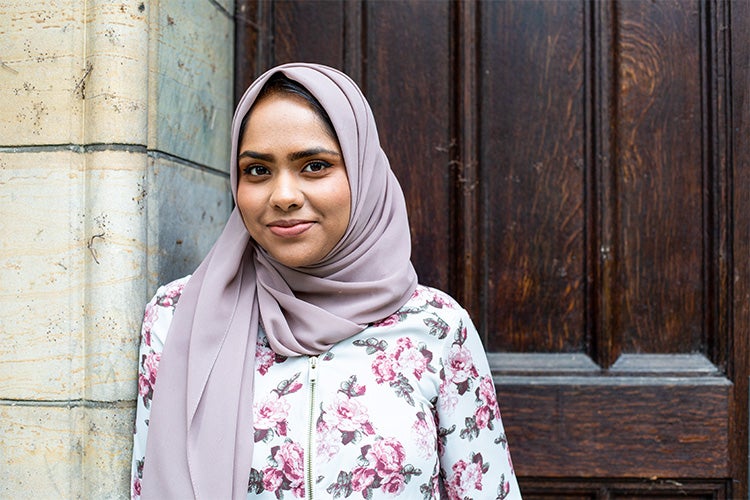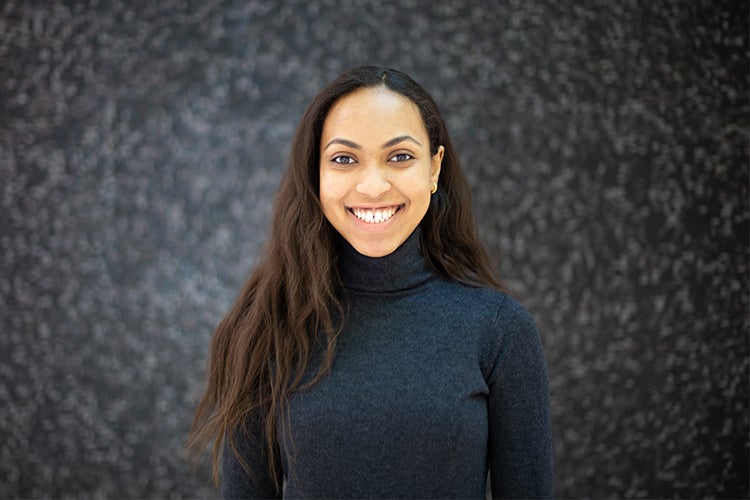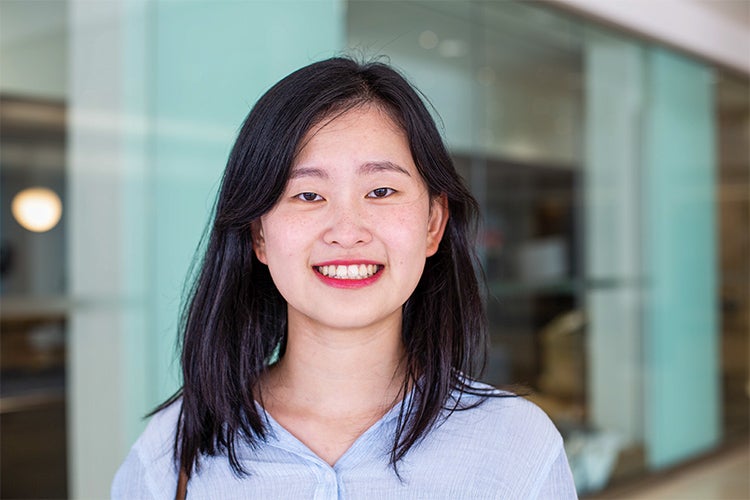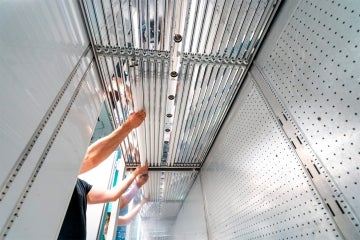Why I want to be a doctor: Meet three women in Medicine's Class of '23
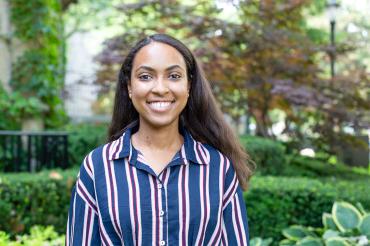
Published: August 23, 2019
As a new school year approaches, incoming students from the Faculty of Medicine's Class of 2T3 at the University of Toronto share what inspired them to pursue medicine and how they hope to weave their passions for advocacy into their careers as physicians.
Hifza Buhari
When I was 12 years old, I was living in Sri Lanka. I witnessed first-hand the destruction of the 2004 Indian Ocean tsunami, to which I almost lost my life. I remember seeing a physician jump into action, using his profession and skill to help those who were injured and in life-threatening situations. His medical knowledge, altruism and compassion was the initial spark for me to pursue medicine.
Over the years, I spent many hours volunteering and working in hospitals. Whether it was simply labelling blood collection tubes to help understand how we can prevent Type I diabetes or working alongside surgeons and fellows to learn how we can reduce rejection after transplantation, I found that I was happy being involved in improving health care. Therefore I knew medicine was the right career for me.
I am so excited to spend the next four years discovering different areas of medicine and figuring out what I’m most passionate about. But I know whatever I end up doing, it will be fuelled by my interests in advocacy, health policy and social justice. There are many causes I deeply care about. Volunteering in Sri Lanka during the dengue epidemic made me interested in disease prevention. In Canada, as part of Toronto General Hospital's Multi-Organ Transplant Student Research Training Program, I handed out care packages to vulnerable homeless populations out in the cold. These experiences helped me realize the importance of the social determinants of health. As a physician, I look forward to having a larger platform to implement social change and influence national policies.
Lina Elfaki
I explored the medical field as a trainee at a teaching hospital in my hometown in Sudan during my undergraduate degree. When training in a hospital run under years of U.S. sanctions and political unrest where skilled health care providers were scarce, you end up filling whatever roles are needed. For me, that mostly involved emergency cases. I will never forget the dread I felt when we couldn’t help a 15-year-old boy who was electrocuted because our defibrillator was rusted and broken. I held his grief-stricken mom who went into a panic and fainted. I then went home in utter disbelief that this was their family’s reality.
During my second year of undergrad studies at U of T, I recognized the lack of Black physicians and the health disparities Black individuals experience in Canada. I became determined to get involved in the direct medical treatment and advocacy for vulnerable populations, especially Black Canadians.
As the eldest of four girls, mentorship has become second nature to me, so I initially started advocating for minority youth who are under-represented in STEM fields. During my master’s degree, I started an initiative called Step into STEM to promote access to STEM careers. I am passionate about elevating health-care standards for these populations.
In Toronto and Sudan, I witnessed how structural violence impedes the health-care standards of marginalized communities. As a future physician, I hope to have an impact on my patients and their communities in multiple ways – from direct medical care to supporting their educational aspirations. I am excited to work with colleagues at the Faculty of Medicine and community partners to unravel the various ways we can promote equitable and accessible health care.
Andrea Liu
At a very young age, I became a caregiver for my grandfather, who was battling liver cirrhosis and liver cancer. I accompanied him to many of his visits to the doctor. With each visit, I was able to witness my grandfather's physicians work hard to help him with his battle, helping to extend his life and increase his quality of life.
I was deeply inspired by their ability to help my grandfather and the impact they had on his life and my family, and wanted to be able to replicate this experience for others. Because of this, I became interested in medicine very early on and was fascinated with learning about how the human body works and what goes wrong during disease. I also took every opportunity I could to try to understand my grandfather's illness in the hopes that I could one day help other people going through similar experiences.
I am really into advocating for better accessibility to health care, preventative health and empowering the public with accurate and reliable medical information. I experienced first-hand how important health awareness and timely access to health care are. My grandfather’s liver disease could likely have been prevented if he had the opportunity to receive better health education and access to much-needed care. This not only inspired me to pursue a medical career, but also to join the Canadian Liver Foundation as a volunteer.
I want to make a difference for people by offering them the help and information they need, when they need it.
